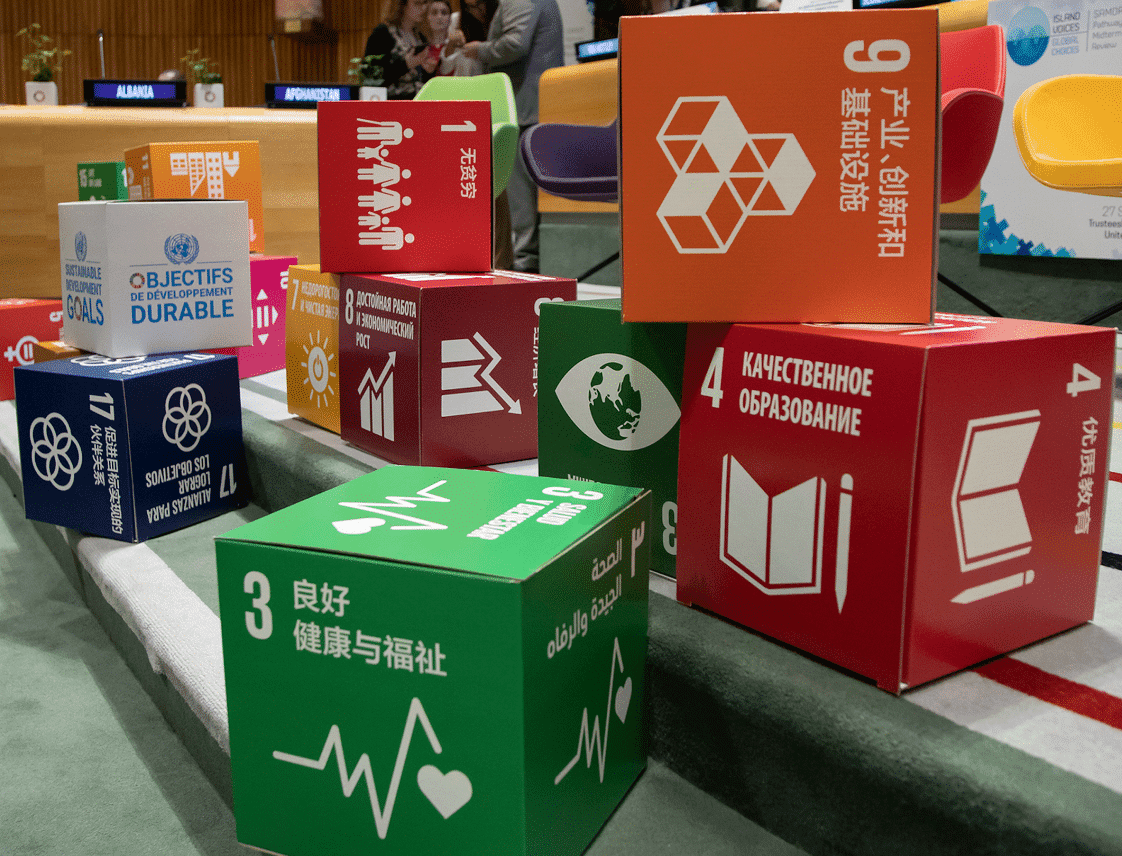Background
Globally, cascading and interlinked crises are exacerbating long-standing challenges to sustainable
development and placing the achievement of the 2030 Agenda in peril.
The confluence of crises,
dominated by the effects of the COVID-19 pandemic, climate change and conflicts, have created
severe impacts on poverty, food and nutrition, health, education, the global economy, the
environment, social cohesion and peace and security.
Urgent and ambitious action is needed to rescue the SDGs and deliver progress for people and the
planet by 2030. According to the 2023 Special Edition of the SDG Progress Report, a preliminary
assessment of the approximately 140 targets with data shows that only about 12 per cent are on
track; close to half, though showing progress, are moderately or severely off track: and some 30
per cent have either seen no movement or regressed below the 2015 baseline.
The President of the United Nations General Assembly will convene Heads of State and
Government for the 2023 High-level political forum on sustainable development under the
auspices of the General Assembly (SDG Summit) on Monday, 18 September and Tuesday, 19
September 2023.
The Summit marks the mid-point of the implementation of the 2030 Agenda for
Sustainable Development and provides a crucial opportunity to accelerate our efforts.
The SDG Summit is the central UN platform for Heads of State and Government to provide
political leadership on the implementation of the 2030 Agenda for Sustainable Development and
its Sustainable Development Goals.
It will provide high-level political guidance on the 2030
Agenda and its implementation, identify progress and emerging challenges, and mobilize further
actions to accelerate implementation.
The Summit will be the centerpiece of the UN’s work in 2023
and of the General Assembly’s High-level week this September.
Objectives and expected outcomes
Through the Summit, countries, both individually and collectively, have an opportunity to place
the world on a sustainable development path.
The international community can seize this
opportunity to make significant transformations for integrated SDG implementation and how
societies produce, consume and share benefits and risks, while leaving no one behind.
The Summit is envisaged to be forward-looking and action-oriented, with the aim of accelerating
international action to improve people’s lives and reinvigorating the sense of hope, optimism and
enthusiasm that characterized the adoption of the SDGs and the 2030 Agenda.
It is expected to
adopt a concise, action-oriented political declaration as its outcome document.
The Secretary-General has urged world leaders to deliver a Rescue Plan for People and Planet at
the SDG Summit through deliverables in three areas.
First, he requested countries to deliver global
commitments to the SDGs, including through an SDG Stimulus by massively scaling up financing
and other measures, such as debt relief.
Second, he urged world leaders to convey a National
Commitment to SDG Transformation.
This could include clear benchmarks to reduce domestic
poverty and inequality levels by 2027 and 2030, in tandem with nationally determined climate
contributions.
And third, all countries are urged to fully engage their domestic constituencies,
particularly civil society and the private sector, in their Summit preparations.
The SDG Summit will also be followed by the Summit of the Future in 2024, which will build
upon the outcomes of the SDG Summit and turbocharge the implementation of the 2030 Agenda.
Programme overview
The opening of the Summit will feature statements by the President of the General Assembly, the
United Nations Secretary-General, and the President of the Economic and Social Council.
The
political declaration will be adopted during the opening of the Summit.
Immediately following, a setting-the-stage segment will take place with the participation of
stakeholders including the SDG Advocates, the Global Sustainable Development Report (GSDR)
Independent Group of Scientists, International Financial Institutions, and Youth, Civil Society and
Private Sector Representatives.
This segment intends to provide a clear picture on what has been
achieved, where we are lagging behind, and what needs to be done to restore credibility on the
promise of a sustainable transformation.
The opening will be followed by a short plenary segment for group statements to hear the actions
and commitments delivered on behalf of groups of States.
Six Leaders’ Dialogues will be held to allow Heads of State and Government to set out concrete
national commitments to SDG transformation.
Each Leaders’ Dialogue will be co-moderated by two States at the level of Head of State and
Government.
Participating States will intervene on the specific theme of the Leaders’ Dialogue to
share their concrete new commitments in the field of sustainability.
The Dialogues will also feature interventions from selected representatives of the UN system,
intergovernmental organizations, the private sector, civil society and academia.
Commitments and recommendations will be summarized and reported back during the Closing
Segment.
The time limit will be three minutes for both national statements during the Leaders’ Dialogues
and statements made on behalf of a Group of States during the plenary segment.
More detailed information at: 2023 SDG Summit








